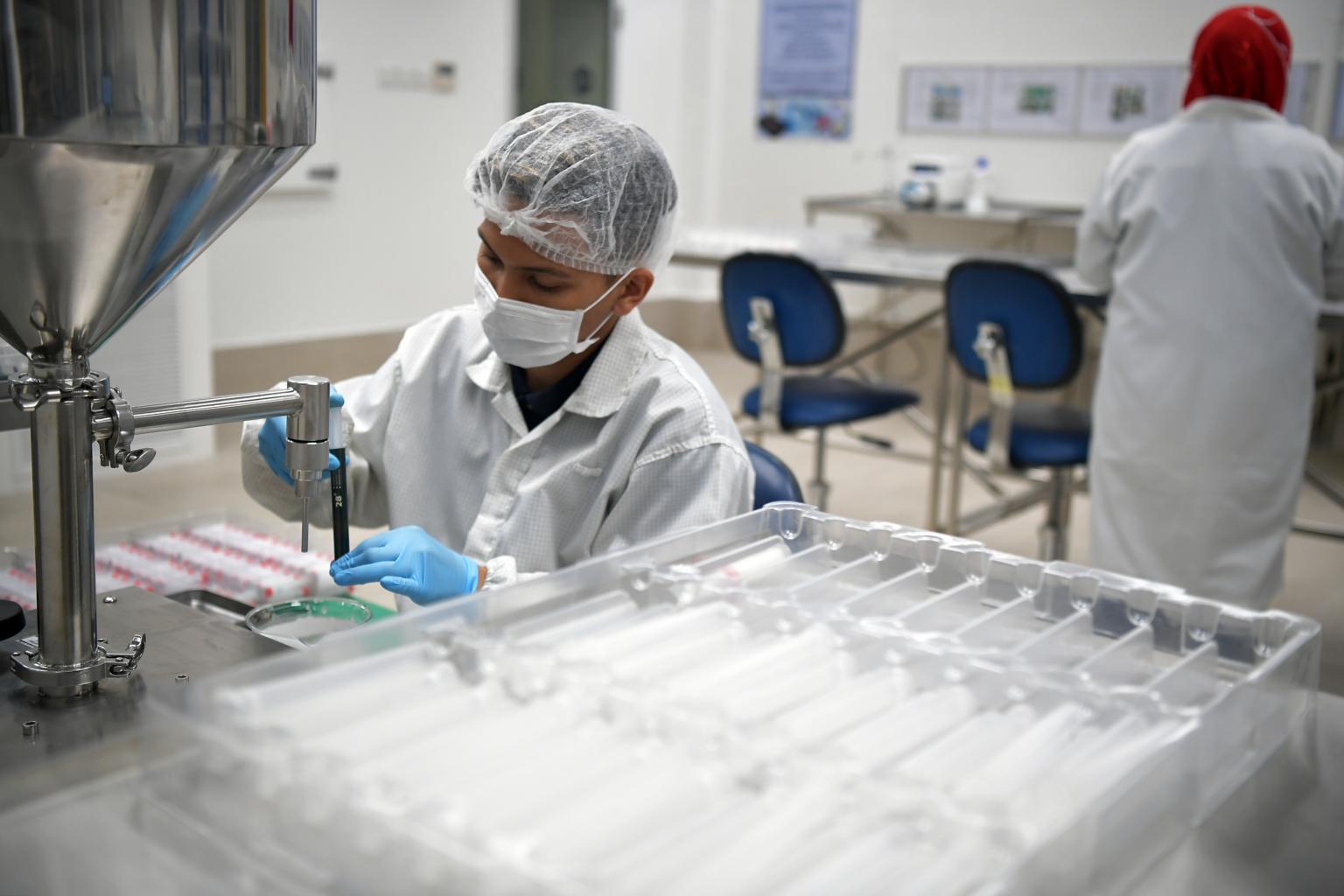Singapore factory output rebounds with 17.9% rise in November
Sign up now: Get ST's newsletters delivered to your inbox

The biomedical manufacturing cluster's output jumped 40.6 per cent compared with a year ago.
PHOTO: ST FILE
Follow topic:
SINGAPORE - Singapore's manufacturing industry bounced back with a bigger-than-expected rise in November, boosted by a surge in biomedical and semiconductor production.
Factory output expanded 17.9 per cent year on year, following a revised 0.8 per cent dip in October, according to data released by the Economic Development Board (EDB) on Thursday (Dec 24). The increase beat the 15.4 per cent rise tipped by economists in a Reuters poll.
Excluding the biomedical manufacturing segment, production expanded 14 per cent last month.
On a seasonally adjusted month-on-month basis, output in November grew 7.2 per cent, returning to the growth trajectory that was seen from June to September. Excluding biomedical manufacturing, production expanded 6 per cent from October.
The biomedical manufacturing cluster's output jumped 40.6 per cent compared with a year ago, with the pharmaceuticals segment expanding 50.8 per cent on the back of higher production of active pharmaceutical ingredients and biological products.
The medical technology segment also increased, by 22.7 per cent, due to higher export demand for medical devices. Singapore produces a range of medical technology products such as implantable pacemakers and contact lenses.
In the year to date, the cluster has seen a 26.1 per cent year-on-year expansion.
The key electronics sector surged 34.9 per cent year on year in November, with all segments recording growth in output apart from infocomms and consumer electronics.
In particular, the semiconductor segment expanded by 40.9 per cent, on the back of demand from 5G markets and a low production base a year ago.
The electronics cluster's output has grown 9.3 per cent year on year from January to November.
Meanwhile, the precision engineering cluster had a 7.3 per cent increase in output in November compared with a year ago. The machinery and systems segment went up by 9.3 per cent due to higher output of semiconductor equipment.
The cluster has grown 10.6 per cent year on year from January to November.
The chemicals cluster expanded 10.1 per cent last month, with the petrochemicals and specialities segments seeing growth, while the other chemicals and petroleum segments contracted. Overall, the sector has dipped 2.2 per cent in the year to date compared with the same period in 2019.
On the other hand, general manufacturing output contracted 13.3 per cent year on year, with broad-based declines. In particular, the food, beverage and tobacco segment fell 14 per cent due to lower production of beverage products and milk powder, while weak demand for construction-related products also led to declines in the miscellaneous industries and printing segments.
The general manufacturing segment shrank 12.7 per cent year on year for the period from January to November.
The transport engineering segment also contracted, with output falling 29.5 per cent in November.
While the land segment grew 31.8 per cent due to higher output of parts and accessories for motor vehicles, the marine and offshore engineering, as well as aerospace segments, saw declines. This was due to travel restrictions as well as the weak global oil and gas markets, which adversely impacted new orders.
The transport engineering cluster has shrunk 25.3 per cent for the year to date.

